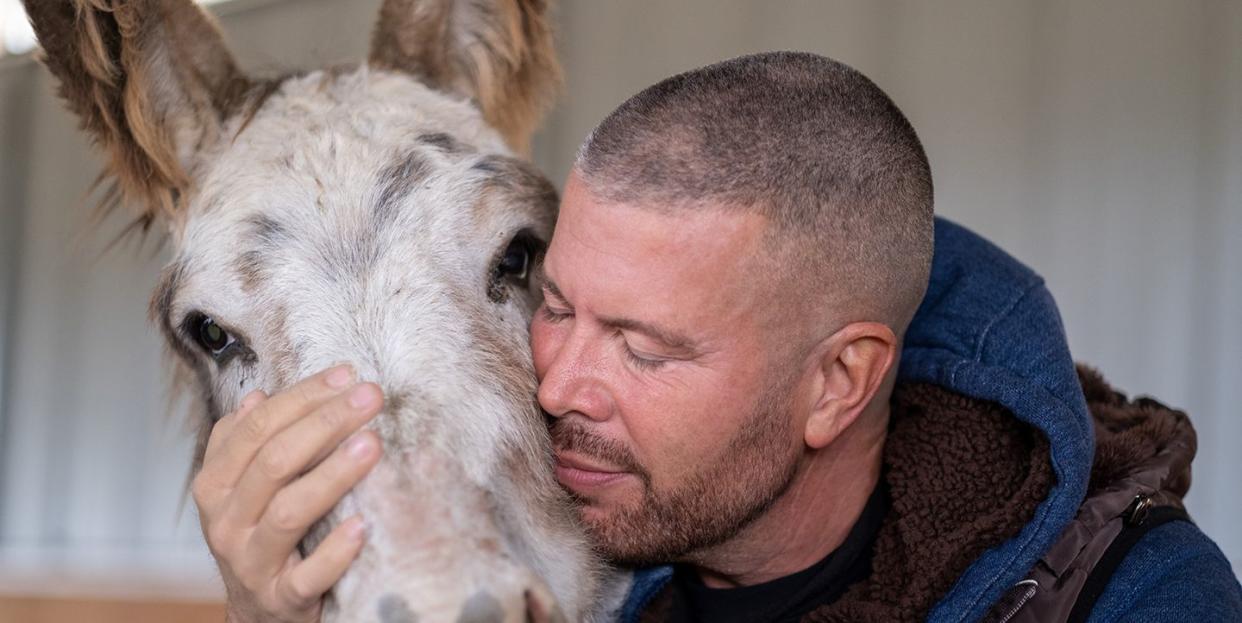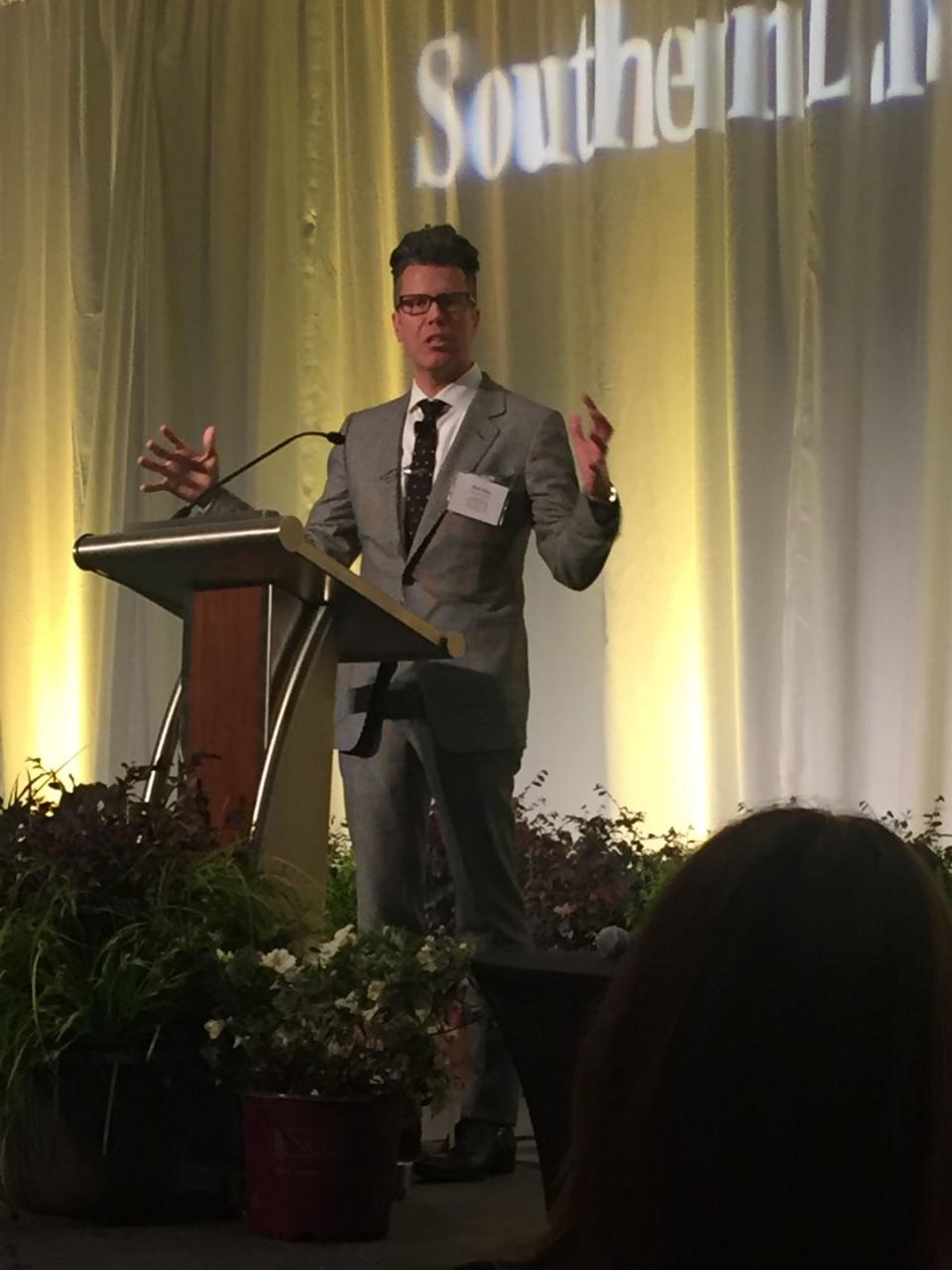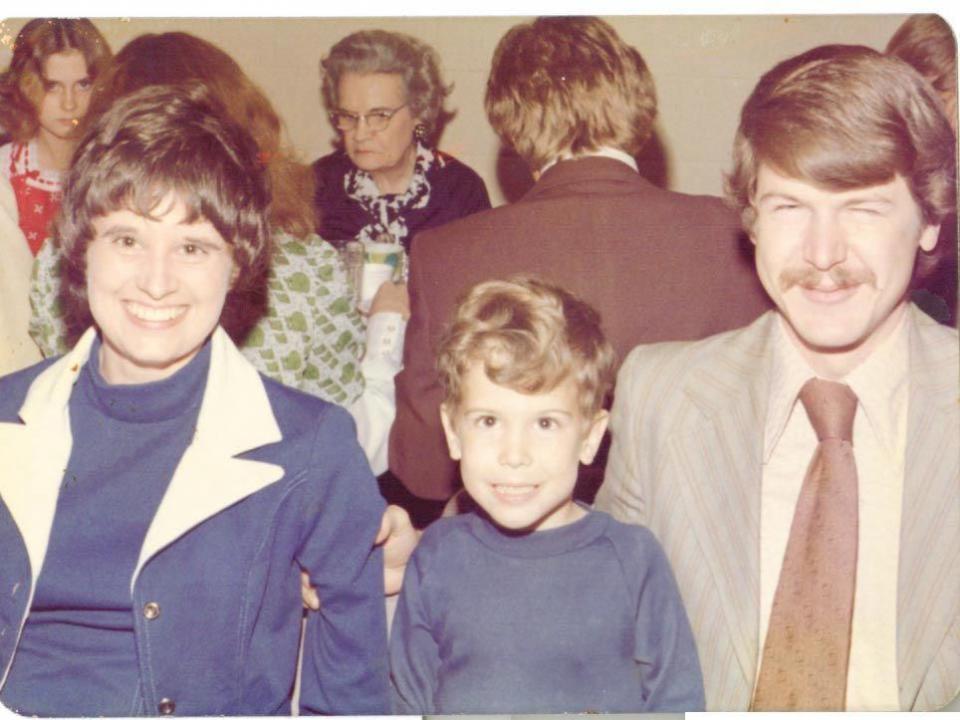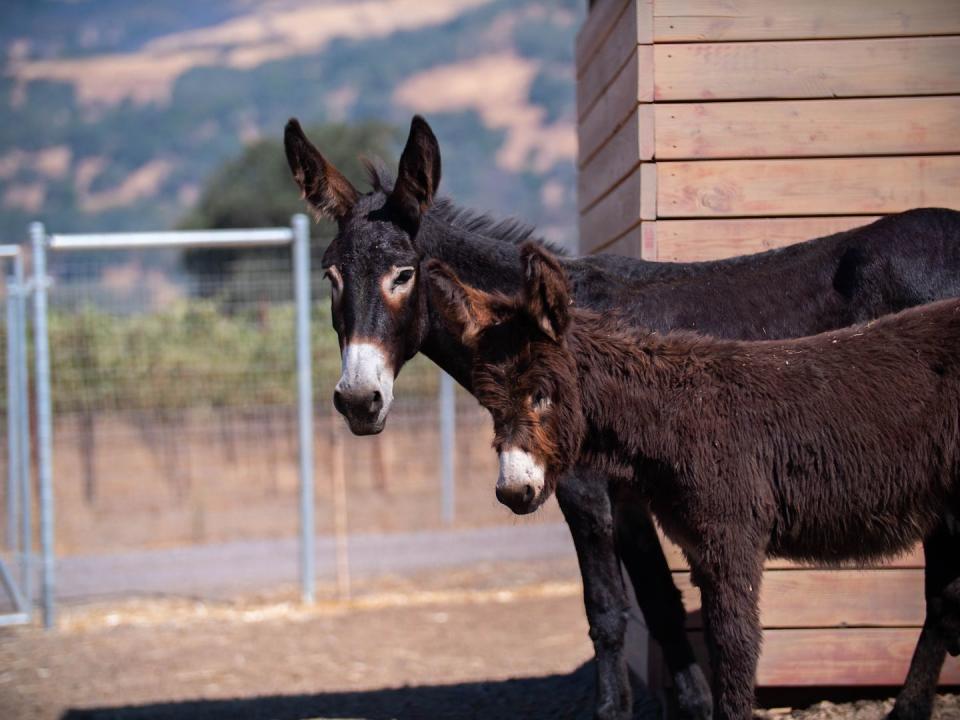He Left His Fast-Paced Life in Media and Started a Donkey Farm

With his knee deep in the dirt and surrounded by dung, Ron King starts his day "at the crack of dawn.” There’s a long list of tasks he must complete before the day ends at Oscar’s Place, the animal sanctuary he cofounded in response to the enduring plight of donkeys: Their worldwide population is projected to be cut in half by 2024, as their hides continue to be used for a medicinal Chinese herb called ejiao to treat anemia, insomnia, and blood circulation problems.
Surrounded by four-legged creatures on a sprawling 75-acre property in Mendocino County, California, he is as far from the glitz and glamour of his past life as he could get—and he’s never been happier.
For two decades, the former Time Inc. media executive's life seemed impossibly good: He’d met and partnered with the man of his dreams, adopted an 11-year-old boy named Shane, and continued ascending the corporate ladder, which afforded him a lifestyle he never dreamed of—world travel, fine dining, and a closet full of Gucci, Versace, and Armani.

But his staggering success belied the hardship and pain he endured in his formative years. Born and raised in Arkansas to Christian missionaries, King never felt that he fit in. “I grew up as the gay son of a Southern Baptist preacher in rural America in the 1970s. The message I received from an early age was that I wasn’t good enough and nobody would have my back.”
At 17, he moved away for college, but having absorbed the belief that he was unworthy and incapable, he stumbled through the next decade of his life. “For years, I was in a really bad place. I was a drug addict. I was homeless when I was 26. I even turned tricks for shelter,” he says.

While waiting tables at the Hard Rock Cafe in 1995 in Los Angeles, an angel in the guise of a crotchety old waitress named Mary Ann pulled him aside and said, “When you’re ready to clean up your life, I will help you.” At first, he rejected her overtures. “I was like, ‘Mind your own business, old lady,’ because I was a snot-nosed young drug addict.”
Then the worst happened: King attempted to take his own life in 1996. He finally accepted help from the “nosy” waitress who regularly checked in on him. “She took me to my first AA meeting,” he recalls. “Afterward, she drove me to my dealer’s house, where I was sleeping on the floor. She came in, and nobody was home. She poured out all of his liquor and left her tip money on his table for him to buy some more the next day. She said, ‘I will be back tomorrow morning at 11 a.m. to take you to your next meeting.’ And I have never had another drink or drug.”
Over the next year, King cleaned up and stabilized his life. While waiting tables one day, a customer who ran a company that distributed and sold VHS “how-to” fishing videos spotted his charisma and easy way with customers and offered him a job in sales. “He taught me almost everything I know about business,” he says. “From there, I was off and running.”
By 2002, King began to scale unimaginable heights—from landing a Don Draper–esque role as an account supervisor at advertising agency Grey Global to nabbing the top publisher spot at Southern Living, where he resuscitated the brand, to becoming the visionary senior vice president of seven prominent glossies: InStyle, People StyleWatch, People en Español, Essence, Southern Living, Coastal Living, and Sunset. “Once I started moving in directions that were positive for my life instead of negative, it just started compounding,” he says.
But his tendency toward workaholism put too much strain on his relationship; and then, his career, as he knew it, unraveled when Meredith Corporation, a Midwest magazine publisher, purchased the iconic Time Inc. in early 2018. “I had really run myself into the ground, and I had lost my relationship,” says King. “I found myself with plenty of money and plenty of designer clothes, but alone and unhappy.” Looking to rest and recalibrate, “I took a package and left,” he says.
Though King yearned for time off, he was open to new opportunities. A successful friend named Phil Selway hired him to manage his real estate portfolio and sell a sprawling 75-acre estate in Mendocino County. While preparing the property to be listed, King moved onto the property, a ranch at the edge of redwood forests in northern California. He watched vapid TikTok videos and worked up shallow sweats on his SoulCycle bike. But a few weeks in, he felt a sweet emotion radiate through his whole being: “I was going on a hike, and I had this very unfamiliar feeling, like, What is it that I'm feeling right now?” he asked himself. “And I realized it was serenity, and I was calm.”
Settling into a less frenetic frame of mind and life, King was scrolling through TikTok when he came across a video of an anguished woman pleading for someone to rescue maltreated donkeys at a kill-pen auction in Texas. Moved and upset, King googled more about the plight of donkeys and read an especially alarming headline in the U.K. newspaper The Guardian: “World’s donkeys being ‘decimated’ by demand for Chinese medicine.” The more he learned, the more he wondered if maybe he could transform his friend’s land into a donkey refuge: Could I do this? Do I want to do this? King asked himself. Why am I having all these feelings?
While trying to determine if he could tackle the challenge of running a donkey farm, he came to a new self-discovery: “I enjoy Gucci suits, and my Mercedes AMG, and eating at the great restaurants and valet parking at the movie theater,” he muses. “But they didn't bring me any joy. What brings me joy…[is] either connection or impact,” he says. “Connection to someone or something, or having an impact on my world in some way.”
Without ever having set eyes on a donkey in real life, he knew with cosmic certainty how he should use Selway’s farm.
When he presented the idea to his employer, it didn’t go down easy: “He one thousand percent thought that I had gone mad! He was caught completely off guard.” But King, a persuasive salesman who still tapped into the basic set of skills he had learned from hawking fisherman videos, convinced Selway, an animal advocate who had always wanted his own legacy to be centered on animal welfare, over a set of omelets and some coffee at Bluebird Café in Hopland, California, near the property. “He humored me in the beginning,” says King, “then I went to work.”
Oscar’s Place, a nonprofit named after Selway’s cat who passed away, seeks to rehabilitate and rehome abandoned or abused donkeys. In a short span of time, the organization has saved 78 donkeys, laid to rest three, and delivered six healthy foals.
When the first five donkeys arrived in December 2020, he says, “I fell madly in love with them.” King goes into raptures over their standout qualities and achievements—how they’ve helped build civilization since the beginning of time, how they’re incredibly intelligent, and how the part of their brains that processes emotion is the same size as ours. “They’re very emotional creatures,” he says. “I go out in the morning and call them and they come running to me. They're dog-like.” The babies are especially scrumptious: “They love to hug…if you sit down, the babies will jump up in your lap.”
None, however, have captured his heart like Viejo. “He’ll put his head on my shoulder, and I’m standing there, petting him. And you can tell we’re both exhaling because it’s calming. Here I am with this 1,100-pound animal who loves me and I love him, and we’re here to help each other and enjoy this life,” he says.
King recently shared a picture of Viejo on Instagram beside a caption that reads: “One of the strongest connections that I have felt in my life is with this guy right here….I can’t believe the love I feel for these guys.”
Youthful and handsome at 52, King breaks down the arduous nature of his new life: “It is physically exhausting. I’m throwing bales of hay and carrying 50-pound bags of concrete, and chasing after animals who kick and bite when you’re trying to give them injections,” he says. After pausing to consider it all, he adds: “It’s just a completely different and very hard life, and I’ve never been happier.”
Earlier this year, in the middle of the pandemic, King shared his life story in a podcast titled Ron King That Shit, a phrase he developed during his Time Inc. days to express the act of applying sheer determination to bounce back from the many impossible situations he faced. In the podcast, King speaks candidly about the difficult moments in his life and reveals traumatic circumstances that even members of his family were unaware of. “I thought I should make the point that I don’t have it all figured out,” he says through tears on the podcast. “I’m only sharing my journey in case it’s helpful...I had hoped that a drug addiction, and being homeless and cancer and a broken neck was enough, that I had paid my dues. But it never stops coming at you...I am determined to live a life that’s worthwhile and meaningful.”

As for his donkeys, over the next year, King plans to rehabilitate and rehome 100 donkeys, introduce programming to help educate the public, create videos to help amplify the organization’s mission, and collaborate with local schools by offering internships and academic credit. “Oscar’s Place—this place, this property, these animals, and this mission—will live long beyond me,” he says, marveling at the wonder of it all. “When I look back on this journey, one of the things I will be most proud of is providing a second chance to these deserving animals. I know that I have changed the course of their lives. And their impact on me has been immeasurable.”
You Might Also Like

